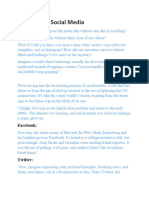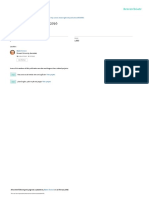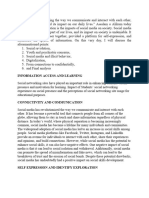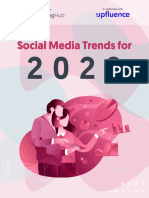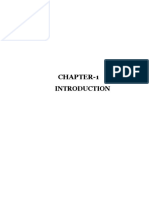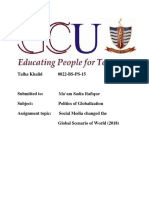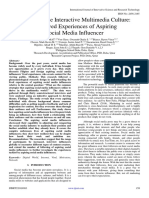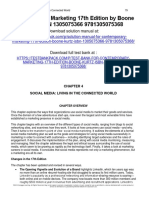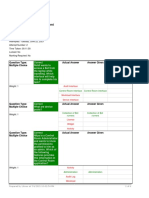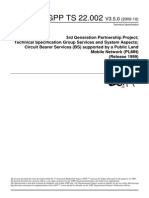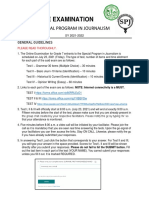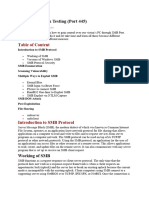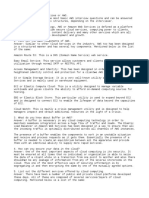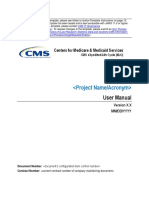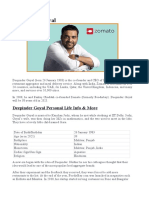How Content Creation and Social Media Changing Our Lives
Introduction
Have you ever caught yourself idly browsing Instagram or Tik Hub and then realised an hour has
gone? Indeed, the same here. Our everyday lives now revolve around social media hence it is
difficult to see a period without it. Platforms including Instagram, YouTube, and Tik Hub have
totally altered our means of expression, information sharing, and communication. They have
brought some serious difficulties along, but they have also invented fresh approaches to interact
with people and even pursue vocations. Social media affects mental health and politics as well as
culture and business. Let us examine more closely where it is headed and how it all began.
Social Media's Evolution and Content Creation
Early in the 2000s, platforms like Facebook (2004), YouTube (2005), and Twitter (2006) let users
communicate, distribute updates, and publish materials. Back then, it largely concerned keeping
in touch with pals and exchanging arbitrary ideas. But things changed quickly when Instagram
debuted in 2010 and Tik Hub started in 2016. The emphasis suddenly turned to images and quick,
interesting films.
This change was much influenced by smartphones. Now anyone with a phone may instantaneously
share a picture or video with the world. Behind the scenes, algorithms on sites like Instagram and
Tik Hub began selecting which material to show you depending on your interests and interactions.
That's why you may quickly lose track of time; the Explore part on Instagram and the "For You"
tab on Tik Hub are meant to keep you hooked by displaying exactly what you wish to see.
Influencers—people who developed huge followings by producing material that spoke to others—
sprang from this structure. A funny video, a style guide, or a trip blog may become viral overnight
and transform regular individuals into internet celebs.
The Affect on Society and Culture
Social media has revolutionized our perspective on trends in cosmetics, fitness, fashion, and
lifestyle. A trend or product approved by a well-known influencer will probably go crazy.
Companies are aware of this, hence they engage influencers to directly reach consumers.As much
as fashion and fitness impact, social media shapes political and social change. Online
�conversations and viral posts helped #MeToo and #BlackLives Matter become well-known. Social
media allows people to organize demonstrations, advocate, and spread awareness of pressing
problems.Surely, nothing is perfect. One is really driven to seem flawless online. Viewing feeds of
well-edited images and polished films can help one to realize how brief life is. Studies reveal
among teenagers and young adults low self-esteem and despair.Another problem are echo
chambers, the conviction that the whole truth is based on just facts supporting one's present
viewpoint. This distorts fair communication and deepens political and social gaps. False
information travels fast, hence separating fact from fiction becomes more difficult. Using social
media excessively has been connected to rising anxiety.
The Enterprise of Social Media and Influencing
Content creation has become a business. YouTube, TikHub, and Instagram have funded creators
with ads, sponsorships, and product placements. Influencers with large followings can make
money by promoting products for companies.Influencer marketing could reach $21.1 billion by
2025. Companies are turning from advertising to influencer relationships because customers trust
influencers more. Micro-influencers—producers with small but engaged audiences—are growing
essential. Their content feels more real, and their personal connection with followers boosts
purchases.This has changed how corporations market products. Trusted influencers'
recommendations often trump billboards and TV ads. Companies offer stories and lifestyles, not
just things.
Future Directions for Content Creation and Social Media
New tech will shape social media. VR, AR, and AI are already altering content. As AI improves
content recommendations, feeds will be more tailored.AR like Instagram filters lets you try things
before buying them or attend concerts from home. These immersive events may become
typical.These changes present new challenges. Disinformation, data privacy, and user safety are
growing concerns. Users and ethics must be balanced in social media companies. How much our
data is excessive? Is it possible to stop misinformation without limiting free speech? These are
unresolved concerns.
In essence,
�Content creation and social media have transformed our means of communication, information
gathering, and mutual impact. Though we have seen amazing chances for connection and
creativity, mental health, false information, and societal division are genuine issues here as well.
Social media's power only will increase; it is not going anywhere. The issue is: Will that power
eventually control us or can we use it for good?






